A vacation is a time to relax, have fun, and explore new places. But for many people who are sober or recovering from alcohol use disorder, it can also be a challenge.
How do you avoid temptations and old habits when alcoholic drinks and drinking culture surround you? How do you find excitement and entertainment without booze? How do you deal with the pressure and expectations of others who may not understand your sobriety?
Fortunately, you can now have fulfilling, enjoyable, sober vacations without compromising your sobriety or missing out on anything.
Call Design for Recovery to Begin Your Healing Journey!
Reach out to our team to discuss sober living options and next steps toward a healthier routine.
What is Sober Tourism?
Sober tourism is a growing trend in the travel industry that caters to the needs and preferences of sober travelers who want to enjoy their trips without alcohol or drugs.
Many people recovering from addiction may hesitate to take a vacation or travel for fear of relapse or facing temptation. However, sober tourism offers a solution for those who want to reward themselves for their sobriety and explore the world in a different way.
Sober tourism means avoiding destinations and activities involving drinking or drug use and instead choosing more meaningful and fulfilling ones. It also means being mindful of your triggers and coping strategies and seeking support if needed.
With sober tourism, you can:
Stay healthy and avoid hangovers, dehydration, or other health issues caused by substances.
Save money by not spending on alcohol or drugs, and use it for other things like souvenirs, meals, or experiences.
Have more authentic and memorable experiences by being fully present and engaged with your surroundings and the people you meet.
Support your recovery and boost your self-esteem by proving to yourself that you can have fun and enjoy life without substances.
Sober tourism is a great way to travel for anyone who wants to stay sober and positively impact their well-being. It can also be an opportunity to discover new aspects of yourself and the world.
Contact Design for Recovery Today!
Fill out our quick form to connect with a peer mentor and learn how our sober living community supports accountability, structure, and personal growth in recovery.
How Can I Travel Without Alcohol? Top 10 Tips and Ideas for Sober Vacations
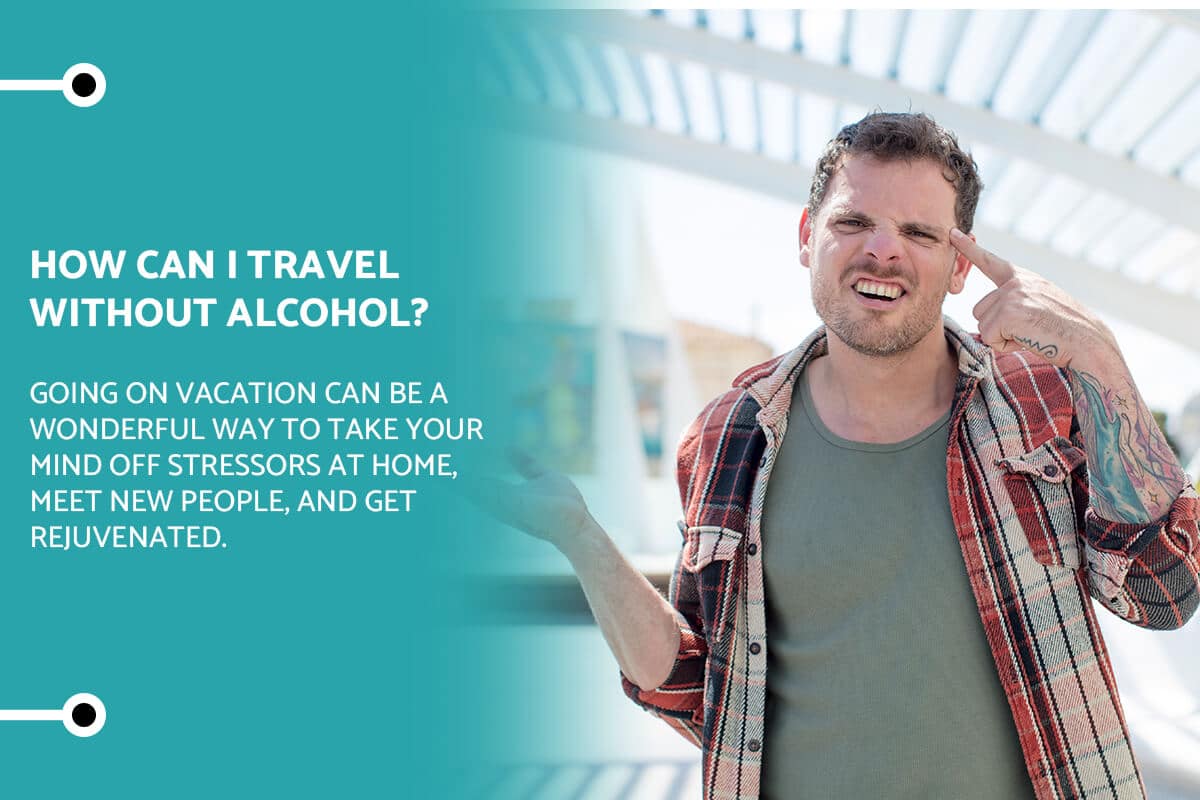
Going on vacation can be a wonderful way to take your mind off stressors at home, meet new people, and get rejuvenated.
Here are some expert tips on how sober people and non-drinkers can stay happy and avoid alcohol and drugs on the road:
1. Create a Safe Environment
Before you go on the road, figure out how you will create a safe environment for yourself on your travel. You want to make sure that you’re minimizing the risk of exposure to triggers that could lead to a relapse.
To do this, you first need to choose your accommodations wisely. If you’re traveling with others who plan to drink alcohol or beer, you may want to have your own space to relax and avoid temptation.
For example, you could book a separate bedroom or a hotel room instead of staying in someone else’s house. This way, you can have more control over your surroundings and avoid situations that could lead to drinking or using drugs.
2. Choose a Destination that Supports Sober Travelers
Some destinations are more alcohol-oriented than others, so do some research on many destinations before you book your trip. For instance, you can look for places with many outdoor activities, nature, culture, food, and other things that interest you. You can also look for destinations with a strong sober community or events you can join.
Avoid places that are known for their nightlife, bars, clubs, and parties. Instead, try researching if there are sober resorts or hotels in the country or town you’re traveling to. These places do not serve cocktails, beer, or other types of booze to guests or have strict policies on their guests’ alcohol consumption.
Some sober resorts also offer spa treatments, wellness programs, meditation classes, and other services that can enhance your sobriety and sense of well-being. These places can provide you with a safe and comfortable environment where you can rest and enjoy your vacation without any stress or pressure.
3. Plan Ahead
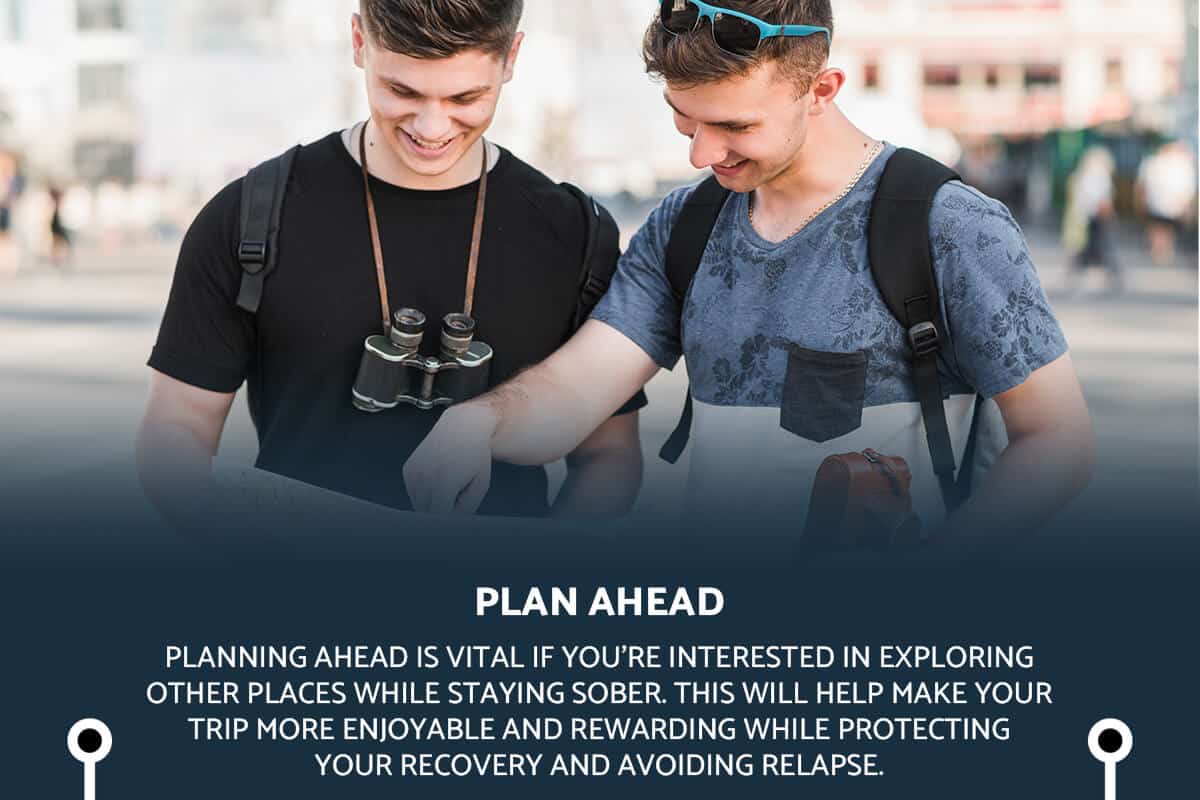
Planning ahead is vital if you’re interested in exploring other places while staying sober. This will help make your trip more enjoyable and rewarding while protecting your recovery and avoiding relapse.
Here are some tips to help you have the best sober vacations while staying true to your recovery goals.
First, decide on the details of your trip. How long will you be gone? Where will you go? When will you travel? A clear idea of how you will spend your time will help you focus on the positive aspects and avoid getting overwhelmed by the planning process.
Second, choose a travel option that suits your needs and preferences. If you’re going on a cruise or a package tour, ensure you know what’s included and what’s not. You don’t want to end up disappointed or frustrated by the lack of time or flexibility. Also, steer clear of cruises or parties that are centered around drinking, as these are a no-no for people recovering from alcohol use disorder.
Third, plan ahead for airport stress. Airports can be stressful places for anyone, especially for people in recovery. They can trigger anxiety, boredom, or cravings for alcohol or drugs. To deal with this, pack some healthy snacks, books, music, or podcasts to keep yourself entertained and relaxed. You may also want to avoid flights with long layovers or book a direct flight if possible.
Finally, be spontaneous but smart. While planning ahead is important, you don’t have to stick to a rigid schedule. You can still have fun and discover new things without risking your sobriety. Just be smart about it and avoid situations that tempt you to drink or use drugs.
4. Find an Accountability Partner
Want to have the best sober vacation? Find an accountability partner.
This is someone who knows your recovery journey and supports your decision to avoid alcohol. They can check in with you regularly and help you cope with any challenges or temptations you may face.
Accountability partners are important in maintaining sobriety because they can help you stay on track with your recovery goals and provide much-needed support and encouragement. They can also help you when you’re feeling triggered, check-in and ensure you’re staying the course even during vacation, and provide unique support that other friends and family might not be able to give you.
You can choose one or more accountability partners from your sober friends or family members. Ensure they are reliable and trustworthy and understand your expectations and boundaries. Before you depart, tell them how they can help you stay on track and what situations you want to avoid.
You can still find an accountability partner online if you’re traveling solo or with people who don’t share your sobriety. There are many online support groups and forums where you can connect with other people in recovery who are traveling or planning to travel. You can exchange tips, advice, and encouragement with them.
5. Take a Group Meeting With You
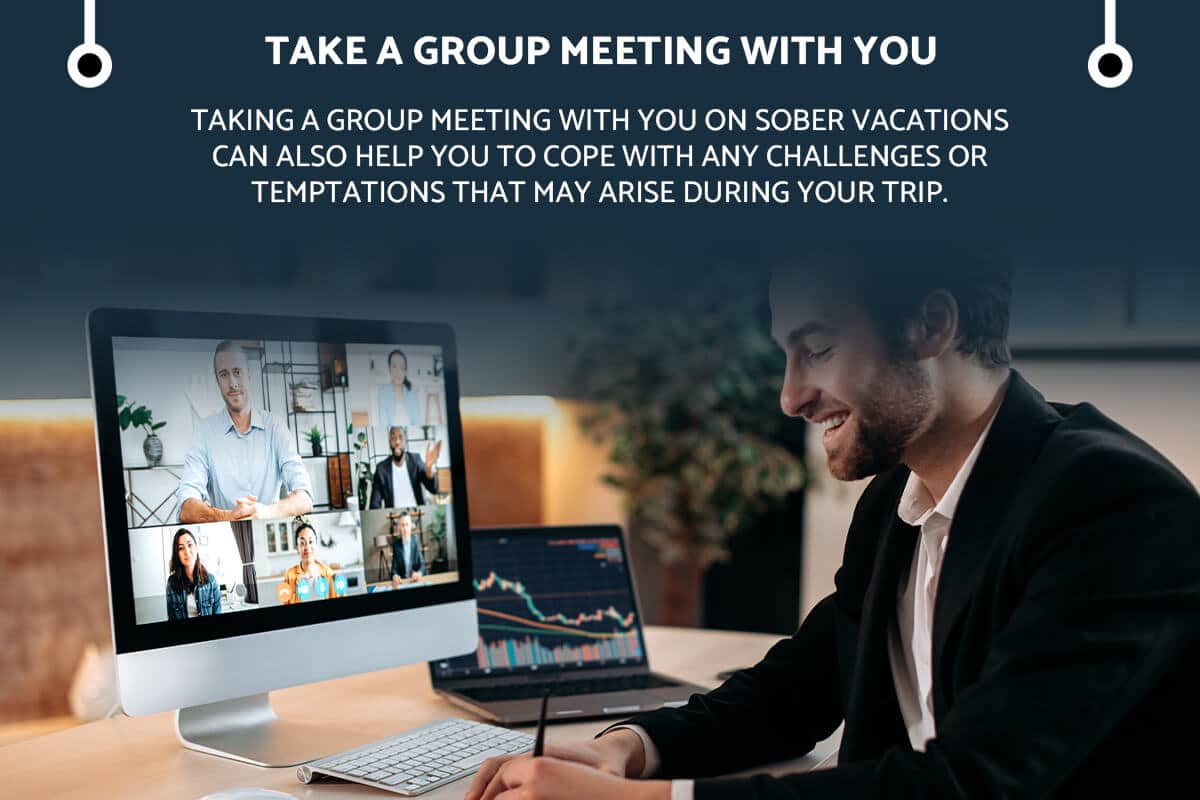
Did you know that you can take your support group meetings with you even on sober vacations? You can take your meeting with you wherever you go, and it can remind you of why you’re maintaining your sobriety.
If your regular meeting is on a weekday, you might want to consider arranging an online meeting if you will be gone for an extended period of time. This can help you maintain your connection to the group and benefit from attending a regular meeting even when you’re far from home.
Taking a group meeting with you on sober vacations can also help you to cope with any challenges or temptations that may arise during your trip.
You can share your experiences and feelings with people who understand what you’re going through and offer support and advice. You can also learn from others who have successfully traveled while sober and get some tips and tricks on enjoying your vacation without compromising your recovery.
Taking a group meeting with you can also boost your confidence and self-esteem, as you can celebrate your achievements and milestones with people who care about you.
If you’re wondering how to join your group meetings while traveling successfully, here are some ideas:
Use online platforms such as Zoom, Skype, or Google Meet to join your regular meeting
Find a new one that suits your schedule and time zone
Use apps such as AA Big Book or NA Meeting Finder to locate nearby meetings in your travel destination and meet new people who share your goals
Create your meeting with fellow travelers who are also in recovery and form a bond over your common journey
Whatever method you choose, taking a group meeting with you on sober vacations can enhance your experience and help you to stay on track with your recovery.
6. Go to an Escorted Tour or Seminar
One of the best ways to enjoy your sober vacations is to go to an escorted tour or seminar that caters to people in recovery. These tours and seminars are organized by rehab centers or other groups that understand the challenges and needs of people recovering from addiction.
They offer various activities that are fun, enjoyable, and healthy for your mind and body. These trips are usually chaperoned and include activities like yoga, meditation, massage therapy, kayaking, and surfing. These services can help you relax, reduce stress, and improve your physical and mental health.
One advantage of escorted tours and seminars is that you will have a professional guide who can help you navigate any potential triggers or temptations that might arise during your trip. They can also provide you with support and advice if you feel stressed or overwhelmed.
You will also have a structured schedule that keeps you busy and engaged. So, you won’t have to worry about finding things to do or places to go that are alcohol-free and drug-free. You can focus on enjoying yourself and learning new things.
You might be able to arrange for a trip like this if you’re going to be attending a conference or seminar. You can learn new skills, explore new locations, and meet new friends who share your goals and values.
To join an escorted tour or seminar, contact your rehab center or look for online listings of sober travel options. You can also ask your therapist, counselor, or sponsor for recommendations.
Keep in mind that you might need to book in advance and pay a fee for the tour or seminar, so that’s something worth noting. You should also check the details of the trip, such as the destination, duration, itinerary, and rules.
Going to an escorted tour or seminar is a great idea for people in recovery from addiction because it allows them to have a fun and rewarding vacation without compromising their sobriety. It also helps them to strengthen their recovery skills, boost their confidence, and expand their horizons.
7. Plan Activities That Don’t Involve Drinking
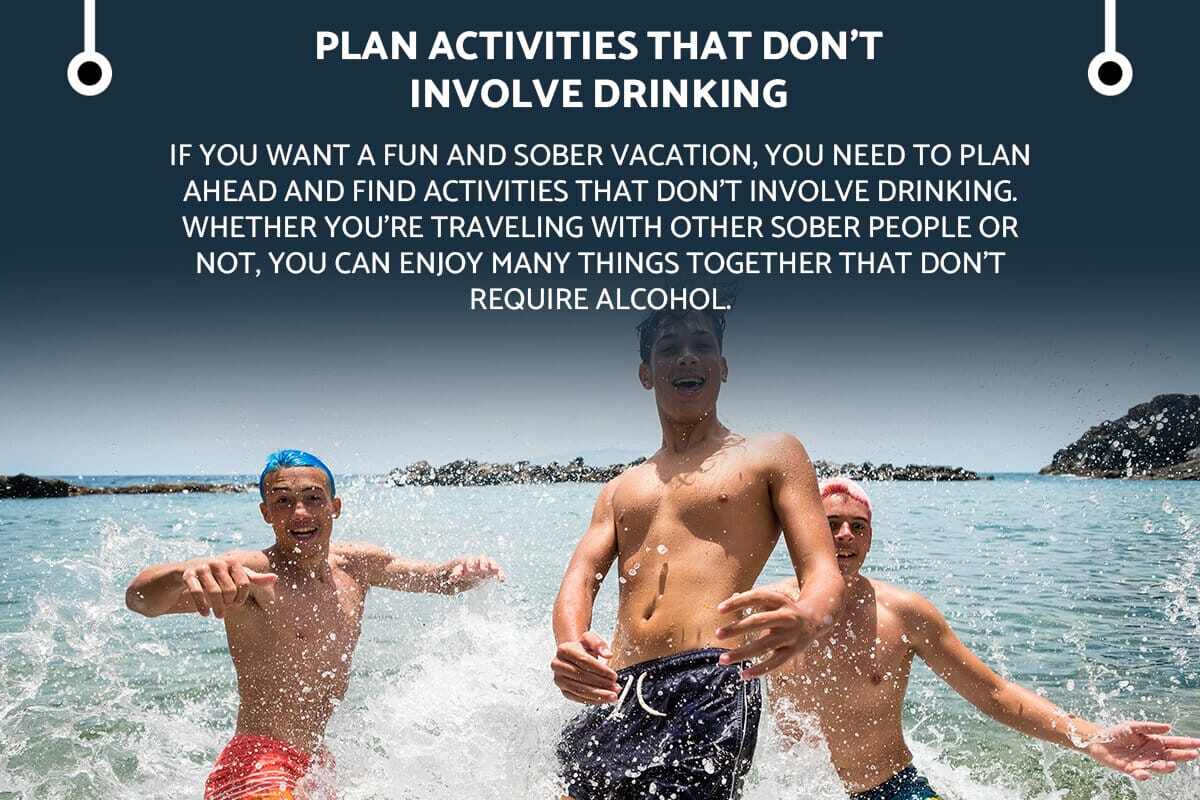
If you want a fun and sober vacation, you need to plan ahead and find activities that don’t involve drinking. Whether you’re traveling with other sober people or not, you can enjoy many things together that don’t require alcohol.
For instance, you can explore new places, visit museums, go hiking, take classes, volunteer, shop, dine out or do anything else that makes you happy. You can also include some activities that are specifically designed for sober people, such as yoga, meditation, art therapy, cooking classes, or workshops.
You can also try new non-alcoholic drinks. One of the perks of sober tourism is that you can find new and delicious non-alcoholic drinks you may not find at home. Many destinations have their specialty drinks that are refreshing, flavorful, and healthy.
You can try local tea, juices, smoothies, mocktails, sodas, wine, or sparkling water. You can also make your own drinks with fresh fruits, herbs, and spices.
A cruise can also be a great vacation option for people in recovery, as it offers a structured and supervised environment with plenty of activities and entertainment. Just make sure to find one that doesn’t encourage drinking culture, or learn to say no when you get drinking invitations.
8. Travel to a Destination With Your Support Network
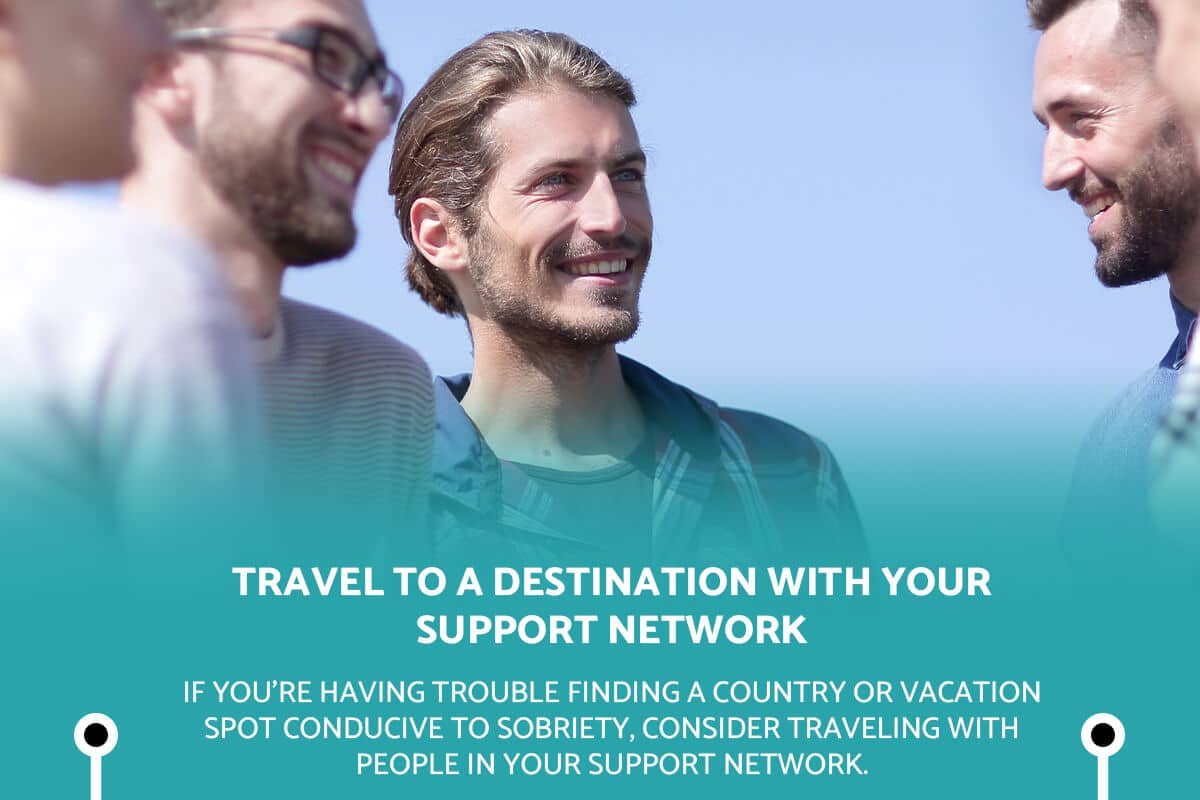
If you’re having trouble finding a country or vacation spot conducive to sobriety, consider traveling with people in your support network.
This way, you can plan a sober vacation with a group of people you trust and who are familiar with your situation. You can split the costs of the trip and choose a destination that appeals to everyone. You can visit a city with plenty of cultural attractions or a nature spot offering outdoor activities.
Another option is to travel with other sober people who share your interests and goals. Join a sober travel group online or through a specialized travel agency. You can also connect with sober people through social media, online forums, or local meetings. Traveling with other sober people can make your vacation more fun and rewarding. You can share your stories, support each other and make new friends.
If you prefer to travel alone or with someone not sober, you can still have a sober vacation by bringing a sober buddy. This can be someone who is also in recovery or someone who is willing to abstain from alcohol and drugs while traveling with you. Having a sober buddy can make your vacation more enjoyable and less stressful. You can have fun together, support each other and avoid situations that might put your sobriety at risk.
9. Have a Backup Plan
Even if you plan ahead, you might encounter some challenges or temptations along the way. That’s why it’s important to have a backup plan if things go wrong.
For example, you can have a list of emergency contacts, such as your sponsor, therapist, or sober friends, who you can call if you need support. You can also have some coping strategies, such as meditation, journaling, or exercise, that you can use if you feel stressed or triggered.
A backup plan can make you feel more confident and prepared for your vacation. It can also help you avoid relapse and stay on track with your recovery goals. Remember that you are not alone and that there are people and resources that can help you overcome any obstacles that might come your way.
10. Have Fun and Be Proud of Yourself
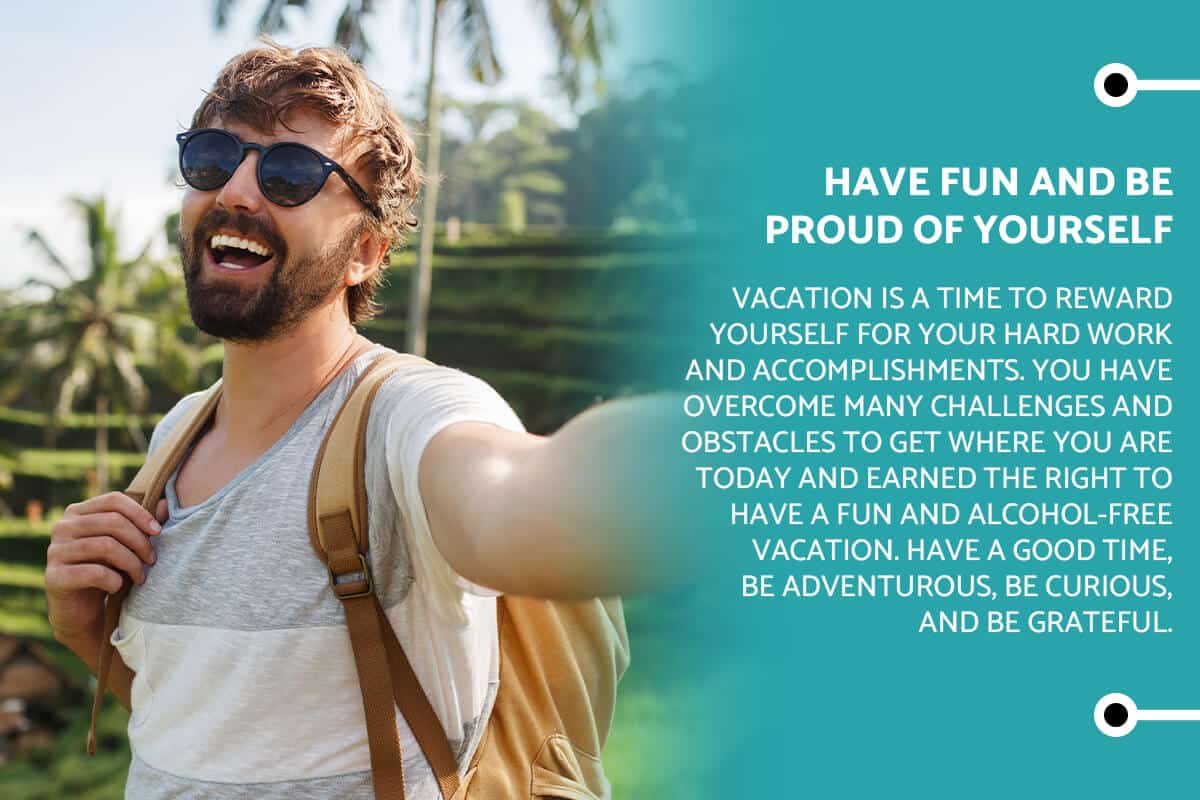
Vacation is a time to reward yourself for your hard work and accomplishments. You have overcome many challenges and obstacles to get where you are today and earned the right to have a fun and alcohol-free vacation. Have a good time, be adventurous, be curious, and be grateful.
Don’t let anyone or anything spoil your mood or your trip. Be proud of yourself for staying sober and choosing a vacation supporting your sobriety.
Also, remember to focus on the positive! Instead of worrying about what you can’t do or what you’re missing out on, focus on what you can do and gain from your sober vacation. Think about how much healthier and happier you are without substances. Admire the beauty and culture of your destination. Try new things and make new memories. Celebrate your sobriety and be proud of yourself for being loyal to yourself
Build a Social Support System at Design for Recovery Sober Living
If you’re struggling to find sobriety-friendly vacation options, consider moving into a sober living house. A sober living house is a shared living environment where you’ll live with others in recovery and access support and socialization opportunities. You can build a social network of fellow sober friends at a sober living house, participate in sober activities, and attend regular AA or NA meetings.
If you’re looking for a great place to live in sobriety, be sure to apply for a room at Design for Recovery’s sober living houses in Los Angeles. At Design for Recovery, we specialize in helping people in recovery find a great home and community. Your new home away from home is not only a great place to pursue recovery, but it will feel like a vacation in many ways.
Living at Design for Recovery will also help you develop valuable life skills like budgeting, time management, communication, and self-care. You’ll also benefit from our structured program, which includes daily check-ins, weekly house meetings, individualized case management, and mentorship. Whether you’re new to recovery or have some time under your belt, Design for Recovery can help you take your sobriety to the next level.
Don’t wait any longer to start living the life you deserve. Contact us today or call now at 424-327-4614 and find out how you can join our sober living community.
- What is Sober Tourism?
- How Can I Travel Without Alcohol? Top 10 Tips and Ideas for Sober Vacations
- Build a Social Support System at Design for Recovery Sober Living
Begin Lasting Sobriety Now!
Frequently Asked Questions
Yes, you can be sober and still have fun! Avoiding alcohol or booze does not equate to boring or missing out on life.
In fact, being alcohol-free can even enhance your enjoyment and appreciation of your travel experiences. You can be more present, mindful, and curious about your surroundings. You can also remember everything you did and saw and avoid the negative consequences of drinking alcohol or taking drugs, such as hangovers, regrets, or health problems. You can also safely explore nature, try new activities, learn new skills, meet new people, or indulge in local cuisine without worrying about health consequences or offending other people.
Taking a break from sobriety is not a good idea if you are in recovery or have a history of alcohol abuse. Even one drink can trigger a relapse or a binge that can undo all your hard work and progress.
Alcohol can also impair your judgment, lower inhibitions, and increase your risk of accidents, injuries, or legal troubles. If you are tempted to relapse while traveling, remind yourself of why you quit substances in the first place and how much better your life is without alcohol. You can also reach out to your support network, attend a recovery meeting online or in person, or practice some coping skills to deal with cravings.
Planning ahead is key to having a vacation that supports your sobriety goals. Remember to:
- Start by choosing a destination that is unknown for its drinking culture or nightlife.
- Research the local customs and laws regarding alcohol consumption and avoid places or events that may expose you to alcohol or drugs.
- You can also book a hotel or accommodation that does not have a bar or minibar in the room.
- Pack some items that can help you stay sober, such as books, journals, music, games, snacks, or recovery literature.
Finding sober-friendly vacation destinations and activities can be easier than you think. You can look for places that offer natural beauty, cultural diversity, historical significance, or educational opportunities. You can also look for adventurous, creative, relaxing, or spiritual activities.
Some examples of sober-friendly vacation destinations and activities are:
- Hiking in the mountains
- Visiting museums or art galleries
- Taking a yoga class or meditation retreat
- Volunteering for a local cause
- Learning a new language or skill
- Going on a safari or wildlife tour
- Taking a cooking class or tasting local food
- Joining a walking tour or bike tour
- Going to a spa or wellness center
- Watching a show or concert
Managing social situations on vacation involving alcohol or drugs can be tricky, but it’s not impossible. You can use some strategies to handle these situations without compromising your sobriety or missing out on the fun. Some strategies are:
- Decline politely but firmly if someone offers you a drink or a drug. You don’t have to explain yourself or make excuses. You can simply say “No thanks” or “I don’t drink” and change the subject.
- Bring your own non-alcoholic drinks or order something that looks like an alcoholic drink but isn’t (such as soda water with lime). This way, you can avoid questions or pressure from others.
- Have an exit plan if you feel uncomfortable or tempted in a situation that involves alcohol or drugs. You can make an excuse to leave early (such as having an early flight) or call a friend or family member to pick you up.
- Stick with other sober people or people who support your sobriety. You can also make new friends who share your interests and values and don’t drink or use drugs.
- Remember to have fun and enjoy yourself. Even without alcohol or drugs, you shouldn’t let others ruin your fun. You can dance, sing, laugh, play games, tell stories, or do anything that makes you happy.
Many sober travel groups or resources are available to help you plan your vacation.
You can join online communities, forums, or blogs that offer tips, advice, or reviews on sober traveling. You can also find sober travel agencies, websites, or apps that offer sober tourism packages, deals, or itineraries. You can also look for sober travel groups, clubs, or events that organize sober trips, tours, or activities. Some examples of sober travel groups or resources are:
- Sober Vacations International offers sober travel and vacations where you can attend daily AA meetings and stick together for excursions and meals.
- Choose Life Sober Adventures offers community-focused adventures for small groups of like-minded sober travelers.
- Sober Outside offers co-ed and women-only travel adventures for the sober community.
- Sober AF Entertainment is a non-profit organization that hosts sober events and concerts.
There are many alternative activities and experiences that can provide enjoyment and fulfillment on vacation without involving substances. You can try something new, challenge yourself, express yourself, connect with others, or pamper yourself.
Some examples of alternative activities and experiences are:
High-adrenaline activities like skydiving, bungee jumping, zip-lining, or parasailing
Art-related themes like painting, pottery, photography, or writing
Joining a book club, a language exchange, or a cultural workshop
Going on a picnic, a boat ride, or a horseback ride
Getting a massage, a facial, or a manicure
NAWS?: Find A meeting. (n.d.). https://www.na.org/meetingsearch/
Pettersen, H., Landheim, A., Skeie, I., Biong, S., Brodahl, M., Oute, J., & Davidson, L. (2019). How Social Relationships Influence Substance Use Disorder Recovery: A Collaborative Narrative Study. Substance Abuse: Research and Treatment, 13. https://doi.org/10.1177/1178221819833379 Thackray, L. (2022, November 9). The rise of Sober Tourism. The Independent. https://www.independent.co.uk/travel/inspiration/sober-tourism-alcohol-free-lifestyle-hotels-b2217773.html The big book. Alcoholics Anonymous. (n.d.). https://www.aa.org/the-big-book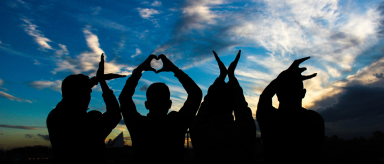

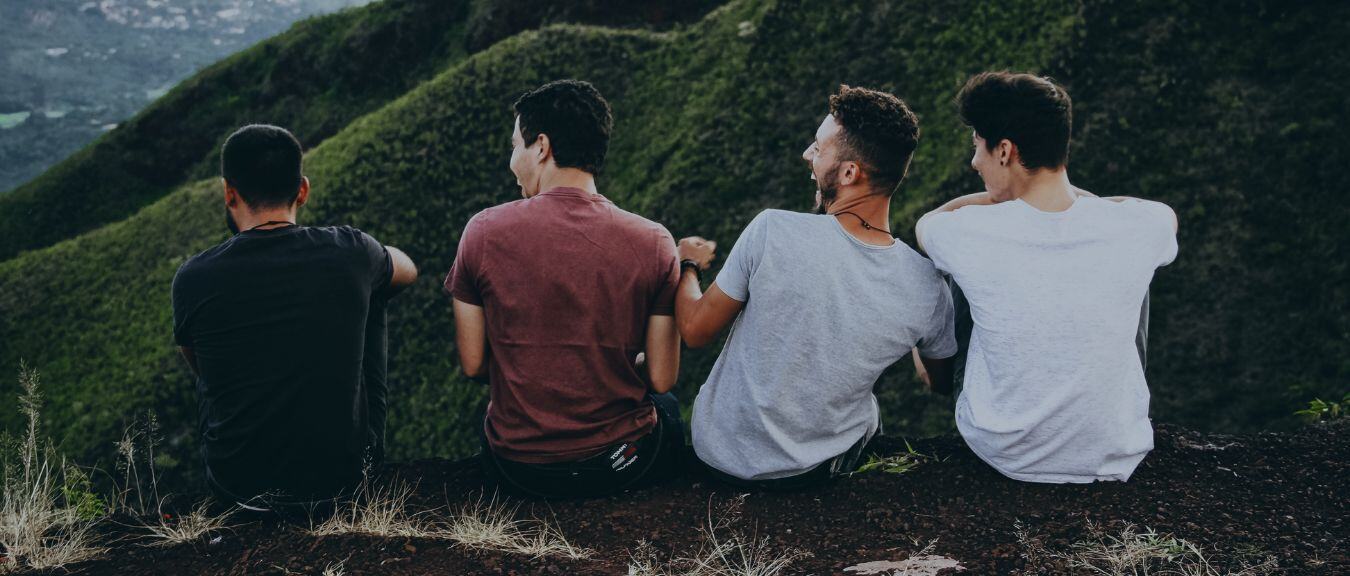

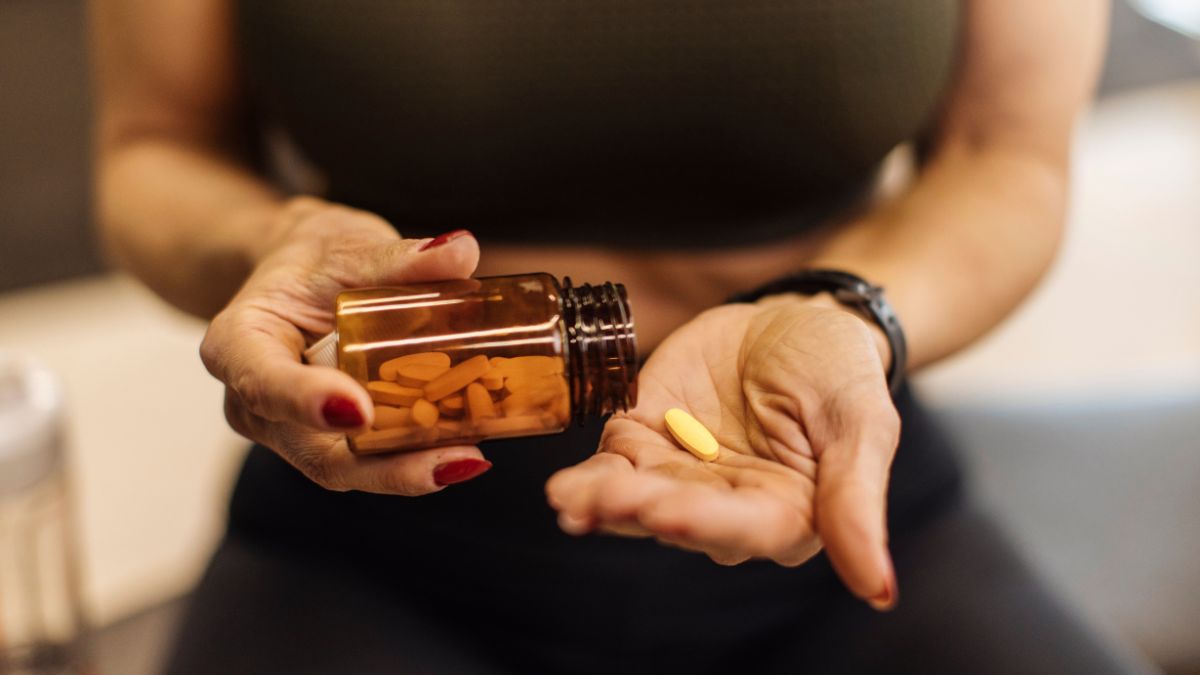
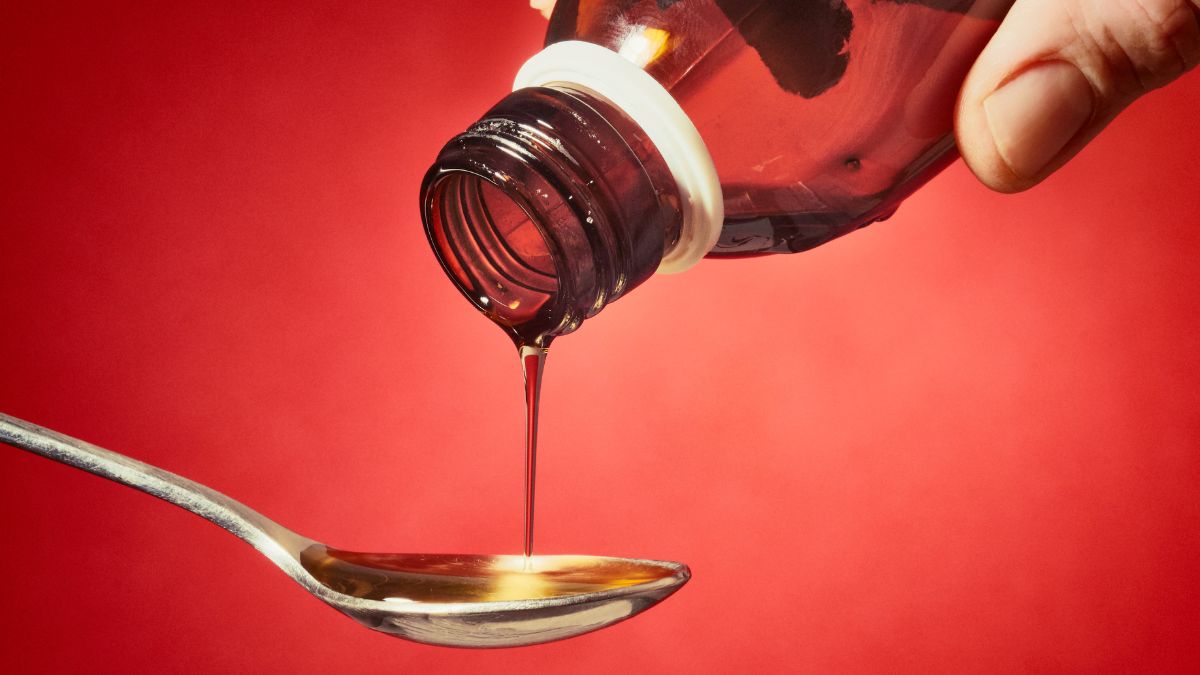
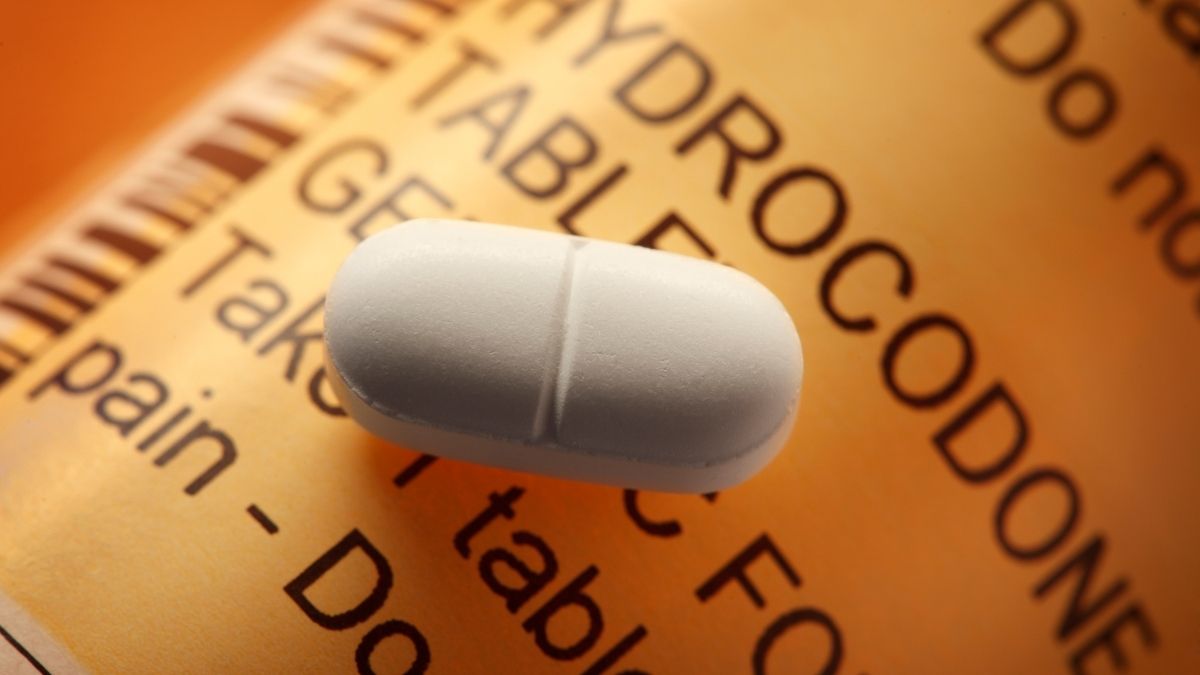
Written By
David Beasley